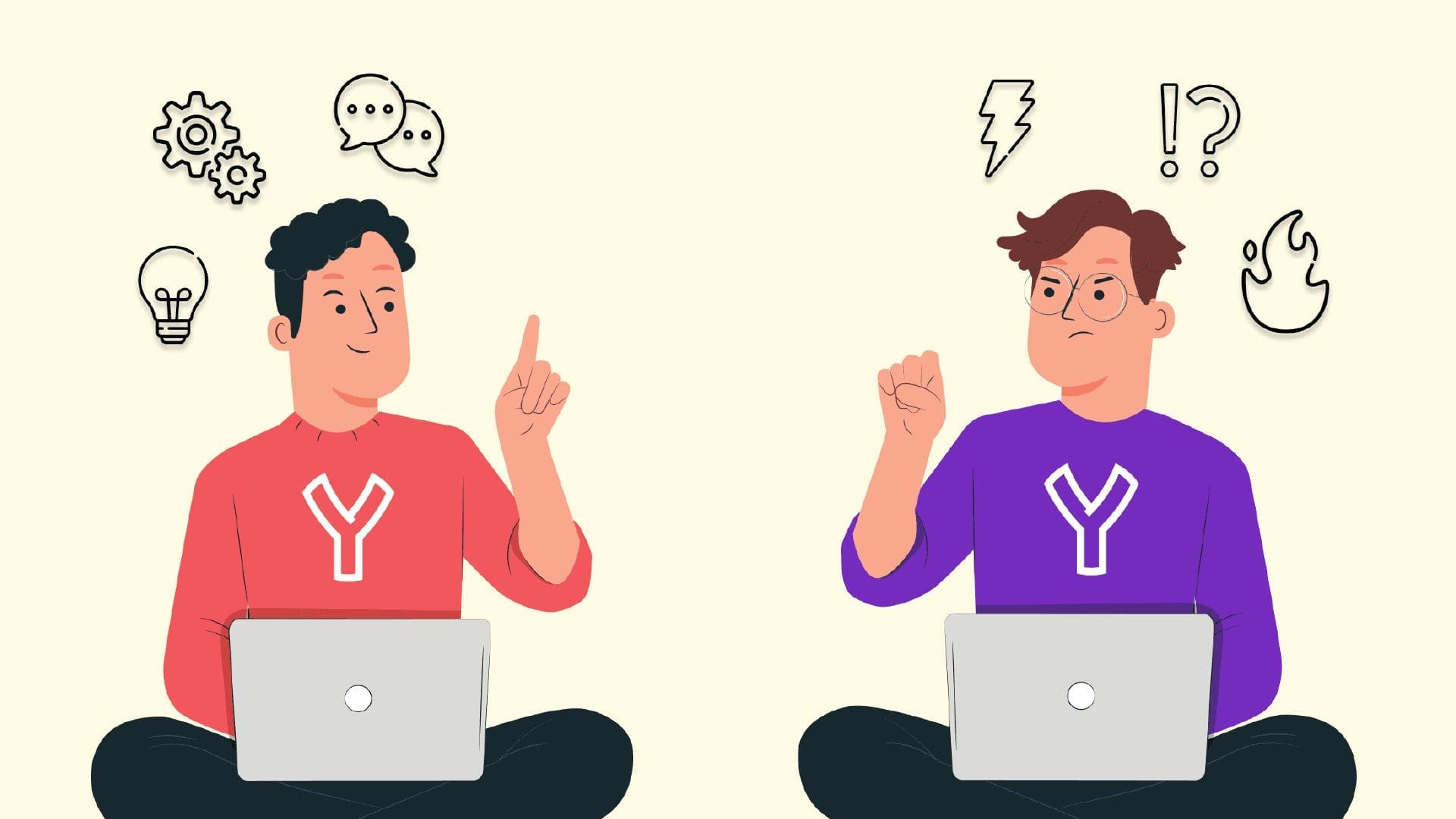Data is at the heart of modern business, and keeping it safe is crucial. It’s like, well, your actual heart. If you don’t protect and keep your heart healthy, you put yourself at serious risk.
If you’re working with vendors, you want to ensure they do everything possible to protect your information. But how can you be sure they’ve got the proper security measures in place? One benchmark to look out for is SOC 2 compliance: a standard for service organizations that specifies how they manage customer data. It’s similar to your kidneys: ensuring your blood is clean and your heart is safe.
In this blog post, we’ll explain why SOC 2 compliance matters, how your vendor’s security practices affect you, and what you must do to ensure your partners keep your information safe.
Summary
- Data security is vital to modern business; SOC 2 compliance ensures vendors keep your information safe by meeting stringent security standards.
- Vendor security practices directly impact your company’s data security, reputation, finances, and operational efficiency.
- A comprehensive guide presents two checklists: one for hiring new partners with SOC 2 compliance and another for updating current vendors on compliance policies, ensuring your partners prioritize data security effectively.
How SOC 2 compliant Vendors Ensure Data Security
We’re sure you know this, but just to reiterate: data security is a massive deal! Protecting your proprietary materials and customer information should be one of your top priorities. And it should be a top priority for your vendors, too.
You’ll know your partners have your back if they’re SOC 2 certified. How? Let’s take a closer look at how SOC 2-compliant vendors ensure your data stays safe.
Adherence to Stringent Security Standards
SOC 2 compliant companies follow some of the strictest security standards based on the Trust Service Criteria. These criteria focus on security, availability, processing integrity, confidentiality, and privacy. To meet these standards, companies must beef up their security a step above the rest, protecting your data more effectively.

Third-Party Verification
But how do you know that these companies claiming to have the best security actually do? SOC 2 compliance requires an independent third-party audit. This investigation confirms that security measures and practices are in place AND those policies and practices are actually used. A SOC 2 Type 2 audit monitors an organization for several months to ensure compliance.
Risk Mitigation
SOC 2 compliance is all about being proactive. It means your partners are taking steps to identify and deal with potential security risks before they become a problem. A forward-thinking approach like this means there’s less chance of missteps, leading to a safer future. When you work with SOC 2 compliant vendors, you can feel more confident that your current data is safe and the risk of future security incidents is lower.
Continuous Monitoring and Improvement
Maintaining SOC 2 compliance requires a lot of ongoing effort and attention. It’s not a one-time event but an ongoing process that demands constant vigilance. This means controls are in place and monitored for continued compliance, policies are routinely audited, staff training is continuous, vendors are analyzed for risk, and so on. When partnering with SOC 2 compliant vendors, you can be assured that they’re committed to continuously improving their security practices to keep up-to-date with the latest threats and vulnerabilities.
Legal and Regulatory Alignment
You know what’s worse than a data breach? Getting fined because of one. SOC 2 procedures align with various data protection laws and legal standards. Vendors following these rules are more likely to align with regulatory requirements, reducing your company’s legal and regulatory risk. TLDR: SOC 2 partnerships help your organization maintain a solid legal and regulatory standing.
Customer Trust and Reputation
Demonstrating a commitment to working exclusively with SOC 2 partners is an effective way to get people on your side; you can instantly instill confidence in internal and external stakeholders. This shows the world that your organization prioritizes safeguarding data and enhancing credibility and reliability. Wouldn’t you feel safer sharing your information with a company if you knew they had extra steps to secure it?
The Impact of Vendor Security on Your Company
No matter what business area they’re working in, any company you partner with can help or harm your business. Specifically, we’re focusing on data security here. A company with tight security measures is better equipped to keep your data safe. But, if they have low-quality data protection, your company will be more vulnerable to attacks. Let’s look closer at the good and bad impact of your partner’s security measures.
Data Security and Privacy
Secure vendors contribute to your company’s overall data security and privacy by adhering to stringent security standards, implementing advanced measures, and employing best practices to safeguard your data from unauthorized access or hacking attempts. This is crucial, especially if the vendor has access to sensitive or confidential information.
On the other hand, partners who don’t prioritize data security are putting your business in jeopardy. They can put your company at risk by exposing your data to breaches and privacy violations, infringing on the confidentiality and security of sensitive data.

Reputation and Brand Image
Partnering with reliable vendors can protect your data from cyber-attacks, build customer trust, and help you comply with regulations. They take security seriously, which helps build trust with your customers and other stakeholders. Imagine standing out in your market without much effort.
On the flip side, the opposite is true if you’re found to be working with unsecured partners. Any security issues caused by your vendors can quickly ruin trust, damage your brand’s reputation, and make customers lose faith in you.
Financial Impact
When it comes to vendor security, money matters a lot. If you choose a secure partner, they can save you from financial losses due to security issues. They have strict measures in place to make sure that your data is safe and sound, which can save you from any legal matters or fines that might come your way.
On the other hand, if the vendors don’t have adequate security measures, it can cause financial trouble. This may include shelling out money for incident response, legal fees, compensating affected parties, and business interruptions.
Operational Efficiency
One thing people don’t think about is how having secure vendors can improve your overall efficiency. These partners offer various reliable and secure services, which can significantly reduce the need for remediation efforts and the associated operational disruptions. Your business can now focus on your core operations, knowing that your vendors provide trustworthy, dependable, and safe services.
Conversely, vendors without proper security measures may require additional oversight, audits, or resources to address security gaps. That’s a lot of additional work you’ll have to handle. All that backlog impacts operational efficiency and diverts resources from core business activities.
Selecting SOC 2 compliant partners
How can you make sure you’re picking vendors who are SOC 2 compliant? Or how can you ask the partners you’re working with to become compliant? We’ve got two checklists that can answer these questions. First, check out the steps for bringing on new partners. Then, read about how to ask your current vendors to become compliant.
Checklist for Hiring New Partners with SOC 2 Compliance
- Define Security Requirements: Clearly outline specific security needs and data types requiring protection.
- Mandate SOC 2 Compliance: Make SOC 2 compliance a non-negotiable contract prerequisite.
- Request SOC 2 Reports: Evaluate scope, period, and exceptions in potential partners’ SOC 2 reports from reputable auditing firms.
- Understand Trust Service Criteria: Ensure vendor compliance aligns with SOC 2 criteria based on your business needs.
- Assess Incident Response: Evaluate potential partner’s readiness and protocols for handling security incidents.
- Tailor Assessments: Customize security evaluations based on data sensitivity and service criticality.
- Vendor Track Record: Research past client experiences and references with similar security requirements.
- Open Communication: Discuss security expectations and partner commitment to ongoing security enhancement.
- Ensure Long-Term Compliance: Inquire about the vendor’s commitment and processes for maintaining SOC 2 compliance.
- Educate and Support: Offer resources and guidance to non-compliant partners to attain or maintain SOC 2 compliance.
- Monitor Ongoing Compliance: Regularly review SOC 2 reports and establish continuous monitoring of vendor security practices.
Checklist for Updating Current Vendors on SOC 2 Compliance Policy
- Define Clear Policy: Outline the decision to mandate SOC 2 compliance, emphasizing data security and regulatory adherence.
- Identify Key Stakeholders: Involve procurement, legal, compliance, and IT teams in policy communication and enforcement.
- Internal Communication: Educate internal teams on the policy, benefits, and implementation timelines.
- Craft Official Communication: Prepare a formal communication to all partners, clearly stating the new policy’s requirements.
- Effective Delivery: Ensure clear and concise policy communication to designated contacts within each vendor organization.
- Follow-up Engagement: Discuss with partners to address queries and concerns regarding the new policy.
- Vendor Management Training: Train internal teams on handling partner inquiries and assessing compliance.
- Compliance Checklist Creation: Develop a step-by-step SOC 2 vendor compliance guide.
- Encourage Collaboration: Foster shared responsibility with partners in achieving and maintaining SOC 2 compliance.
- Establish a Monitoring System: Implement ongoing vendor compliance monitoring with the new policy.
- Review and Adapt: Periodically evaluate policy effectiveness, incorporating feedback and adjusting as necessary.
Conclusion
You now know that safeguarding data is akin to protecting your heart – crucial for survival! Partnering with SOC 2 compliant vendors is your security shield, ensuring your data’s integrity. They follow strict security standards, get checked out by third-party verifiers, and continuously work to improve their security practices to keep you safe.
And they don’t just protect you, but they also protect your customers and keep your company’s reputation intact. It’s about avoiding trouble and making things run smoothly and keeping your finances stable.
The biggest takeaway? The key to keeping your data safe and healthy in the digital world is ensuring your vendors are SOC 2 compliant!
Need help with more decision?

Written by: Savannah
Savannah is our one-woman marketing department. She posts, writes, and creates all things Slingshot. While she may not be making software for you, she does have a minor in Computer Information Systems. We’d call her the opposite of a procrastinator: she can’t rest until all her work is done. She loves playing her switch and meal-prepping.

Edited by: David
David excels at propelling Slingshot towards their goals and oversees the strategic direction of the company. He’s been described as ‘intense, driven, caring, and passionate’ both at work and play. At work, he enjoys watching his team explore, imagine, and reinvent to do the best by their clients. At play, he drives Karts at insanely high speeds and scares his wife half to death. It’s all or nothing. Which means he gives it all.




